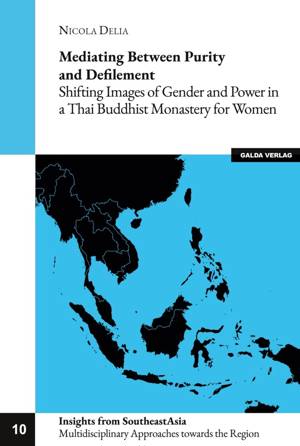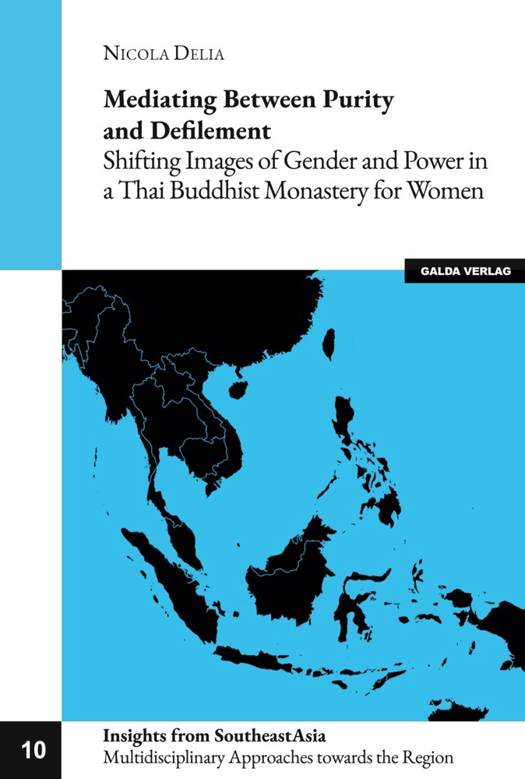
- Retrait gratuit dans votre magasin Club
- 7.000.000 titres dans notre catalogue
- Payer en toute sécurité
- Toujours un magasin près de chez vous
- Retrait gratuit dans votre magasin Club
- 7.000.0000 titres dans notre catalogue
- Payer en toute sécurité
- Toujours un magasin près de chez vous
Mediating between Purity and Defilement
Shifting Images of Gender and Power in a Thai Buddhist Monastery for Women
Nicola Delia
74,95 €
+ 149 points
Description
This book investigates shifting gender dynamics in a Buddhist monastery for women in Northern Thailand. Based on ethnographic fieldwork with a community of female monastics in the province of Chiang Mai, the study explores women's agency in recently establishing, with success, the region's first known order of fully ordained Buddhist nuns (bhikkhunī). Central to the investigation are tensions arising from novel images of women's bodies clothed in saffron robes that have historically been associated with male power and prestige. The study asks how local veneration of charismatic nuns is reconciled with longstanding beliefs in a female capacity to defile or destroy sacred potency. Time-honoured notions of menstrual pollution are revisited, as are ways in which these are reproduced as well as reconfigured in the female monastery. Particular attention is also paid to solidarity from local monks with women's controversial ordination projects in Chiang Mai. The book draws on concepts of practice and performativity, ascetic charisma and protective power. In so doing it highlights processes by which female monastics in a Northern Thai context navigate fluid gender boundaries as they lay claim to Buddhist merit and spiritual potency of a kind long attributed in Thailand to monks. Inspired by a proposal put forward by Nicola Tannenbaum for the study of Thai gender, these findings are in turn linked to constructions of power and gendered access to it observed across Southeast Asia. ABOUT THE SERIES Developments in the field of area studies - goaded by the analytical deconstruction of world regions as such - have deeply affected the knowledge production on societies and cultures located in these politicized compartmentalization of the globe. With this series, the editors and authors wish to contribute to a reformulation of area studies that emphasizes the continuing epistemic value of contextualized knowledge production that is firmly rooted in concrete places. Starting with
Spécifications
Parties prenantes
- Auteur(s) :
- Editeur:
Contenu
- Nombre de pages :
- 392
- Langue:
- Anglais
- Collection :
Caractéristiques
- EAN:
- 9783962033286
- Date de parution :
- 31-05-24
- Format:
- Livre broché
- Format numérique:
- Trade paperback (VS)
- Dimensions :
- 156 mm x 234 mm
- Poids :
- 548 g

Les avis
Nous publions uniquement les avis qui respectent les conditions requises. Consultez nos conditions pour les avis.






